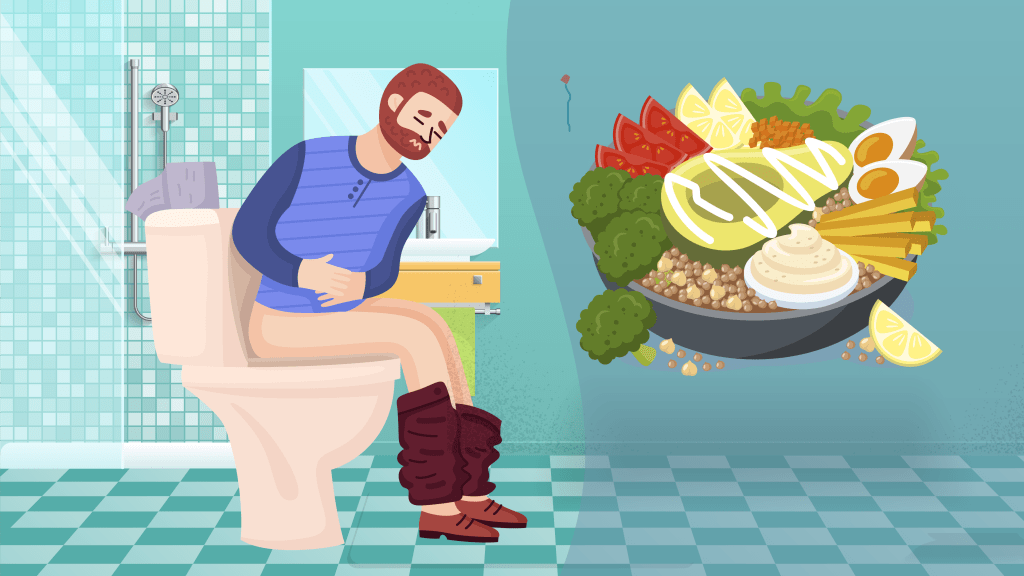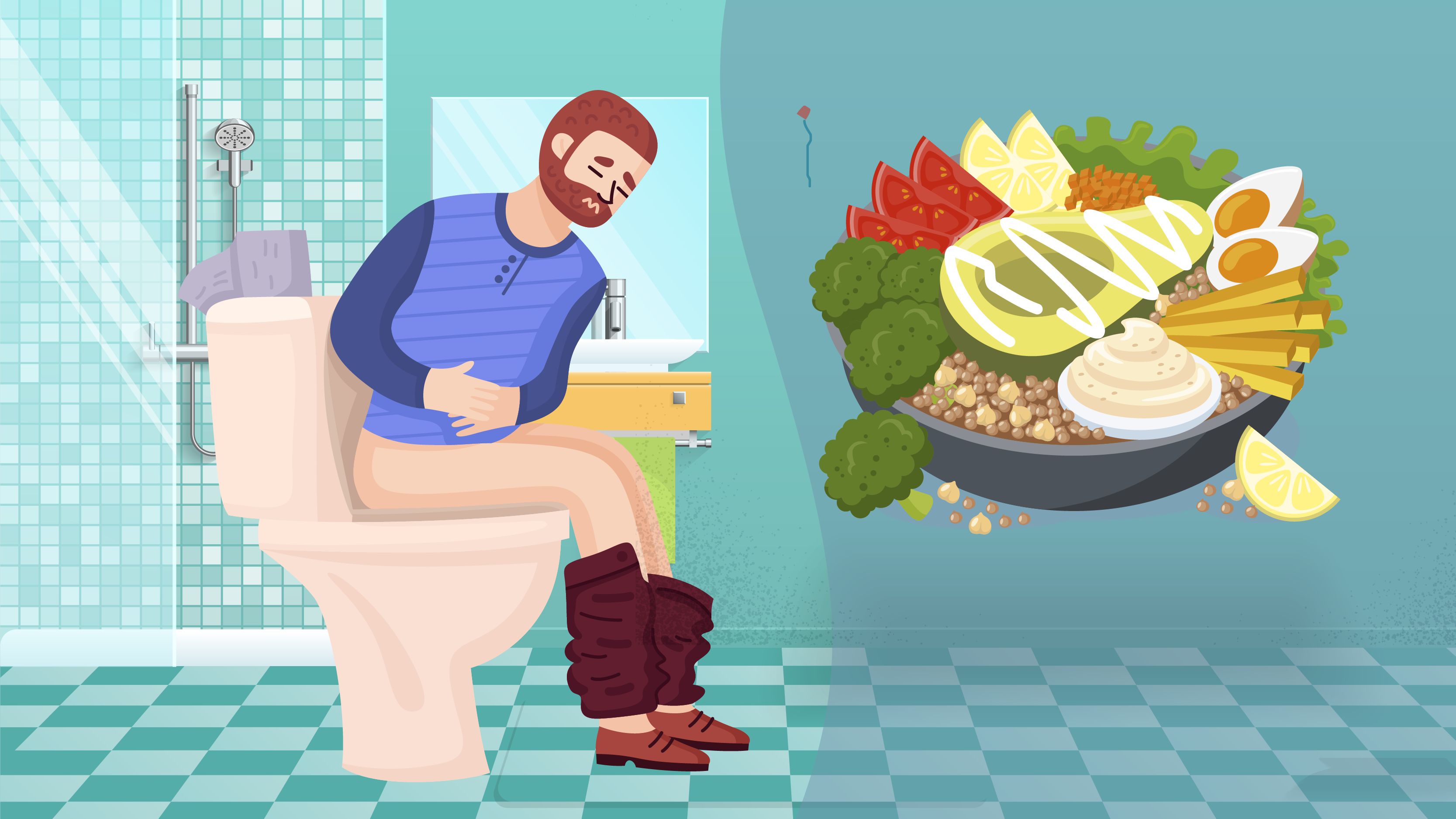
What is Constipation?
Constipation is a gastrointestinal disorder in which bowel motions are infrequent or difficult to pass. The stool is frequently firm and dry. Other symptoms may include stomach discomfort, bloating, and the sensation that one has not completed a bowel movement. Constipation complications might include hemorrhoids, anal fissures, and fecal impaction. Adults typically have three bowel motions per day to three bowel movements per week. Babies normally have three to four bowel movements per day, whereas young children have two to three per day.
Read More – Benefits Of Apple Cider Vinegar
Whatever your bowel pattern is, one thing is certain: the longer you wait to defecate, the more difficult it is for excrement to pass. Other essential characteristics that typically identify constipation include:
-Your stools are firm and dry.
-Your bowel motions are uncomfortable, and you have trouble passing stools.
-You have the impression that you haven’t emptied your bowels.
What is the prevalence of constipation?
If you’re constipated, you’re not alone. Constipation is a common gastrointestinal problem in the United States. Every year, at least 2.5 million people seek medical attention for constipation.
Symptoms and Causes of Constipation:
What causes constipation?
Constipation occurs when your colon (large intestine) absorbs an excessive amount of water from your stool. This dries out your excrement, making it hard and tough to expel from your body.
Read More – 8 Effective Ways In Which You Can Prevent Hemorrhoids (Piles)
To recap, when food passes through your digestive tract, your intestines progressively absorb nutrients. Poop is the partly digested food (waste) that moves from your small intestine to your big intestine. This waste absorbs water in your intestines, making it more solid. Food may travel too slowly through your digestive tract if you have constipation. This allows your colon extra — much too much — time to absorb water from waste. The feces become firm, dry, and difficult to expel.
What is the cause of constipation?
Constipation can be caused by a variety of reasons, including lifestyle choices, drugs, and medical disorders.
Common causes of constipation in the modern world include:
- Consuming insufficient fiber.
- Dehydration is caused by not drinking enough water.
- Inadequate physical activity.
- Changes in your daily schedule, such as traveling, eating, or sleeping at various times.
- Consuming a lot of milk or cheese.
- Stress.
- Trying to resist the need to urinate.
What are the Signs and Symptoms of Constipation?
Symptoms of constipation include:
-You only have three bowel motions every week.
-You have dry, hard, and/or lumpy stools.
-Your feces are uncomfortable or difficult to pass.
-You get stomach pains or cramps.
-You feel bloated and sick.
-You have the impression that you haven’t emptied your bowels following a movement.
What are the Causes of Constipation?
Constipation can strike people of all ages at any age. However, some risk factors make people more prone to becoming constipated regularly (“chronic constipation”). These elements are as follows:
- People over the age of 65 tend to be less active, have a slower metabolism, and have less muscular contraction strength along their digestive tract than younger people.
- Constipation during pregnancy and after childbirth, especially if designated female at birth.
- Hormonal changes may make you more prone to constipation. The fetus in your uterus may squeeze your intestines, impeding stool movement.
- Not consuming enough fiber-rich meals. Fiber helps food move through the digestive tract.
- Taking certain drugs.
- Having various neurological (brain and nerve) illnesses
How to Get Rid of Constipation:
To alleviate constipation, start by increasing your fiber intake with fruits, vegetables, whole grains, and legumes while ensuring you stay well-hydrated. Maintain a regular meal schedule, incorporate exercise into your routine, and consider natural remedies like prunes or probiotics. If necessary, over-the-counter options such as fiber supplements or laxatives can provide short-term relief, but it’s essential to use them judiciously and consult a healthcare professional if constipation persists or worsens, as they can identify underlying causes and recommend appropriate treatments for long-term relief.
Foods that help in Getting Rid of Constipation:
1. Prunes
Prunes, or dried plums, are a popular natural cure for constipation. Prunes’ insoluble fiber, cellulose, may increase the quantity of water in the stool, which can add heft. Meanwhile, the soluble fiber in prunes ferments in the colon, producing short-chain fatty acids that may potentially increase stool volume. Prunes contain sorbitol, a sugar alcohol that the body can not readily absorb. In a limited proportion of people, it may assist in drawing water into the colon and provide a laxative effect.
2. Apple
Apples contain a lot of fiber. One medium apple with skin (about 200 grams) contains 4.8 grams.
Apples contain pectin, which may provide several health advantages, such as:
-Increasing the frequency of stools
-Lowering the hardness and length of the stool
-Reducing the requirement for laxatives
Apples are a simple method to increase your fiber intake and relieve constipation. You may eat them whole or cut them up to add to salads or baked items.
3. Pears
Pears contain sorbitol and fructose, both of which have laxative characteristics. Fructose is a form of sugar that is slowly absorbed since the majority of it is metabolized by your liver. This indicates that unabsorbed fructose may cause water to enter your intestines and soften your stools. However, further study is required to establish these advantages. Pears may be included in your diet in a variety of ways. They go well in salads, savory meals, and baked products, either fresh or cooked.
4. Kiwi
Kiwis are a high-fiber fruit that may be eaten on its own or added to fruit salads and smoothies. One kiwi (75 g) has around 2.3 g of fiber. Kiwis are good for your metabolism, immune system, and digestion.
They may aid with constipation relief:
-Enhancing stool consistency
-Reducing the length of stools reducing stomach pain, strain, and discomfort
This might be attributed to the enzyme actinidin, which has been shown to improve gut motility and bowel habits.
5. Citrus fruits
Citrus fruits such as oranges, grapefruits, and mandarins are both refreshing and high in fiber.
One orange (154 g) contains 3.7 g of fiber, but one grapefruit (308 g) has approximately 5 g. Citrus fruit peels are high in pectin, which may aid in colonic transit and relieve constipation.
Citrus fruits also contain naringenin, a flavanol. Mice studies indicate that this may have laxative properties. More human study is needed, however, to substantiate these advantages. Eat citrus fruits fresh to obtain the most fiber and vitamin C. Oranges and mandarins are excellent snacks, while grapefruit is delicious in salads or sliced in half for breakfast.
6. Spinach and green leafy vegetables
Green vegetables such as spinach, Brussels sprouts, and broccoli are high in fiber, vitamins, and minerals. These greens may help add bulk and weight to feces, making them easier to move through the digestive tract. One cup of boiled spinach (180 grams) has 4.3 grams of fiber. Spinach may be included in a quiche, pie, or soup. Raw baby spinach or fragile greens can also be used in salads or sandwiches. Brussels sprouts are also extremely nutritious, with only 5 sprouts having 3.5 grams of fiber.
They can be served hot or cold after being boiled, steamed, grilled, or roasted. Meanwhile, one cup of broccoli has 2.4 grams of fiber. It may be cooked and added to soups and stews or eaten raw in salads.
Read More – There Are Various Ways In Which You Can Get Rid Of Pimples



